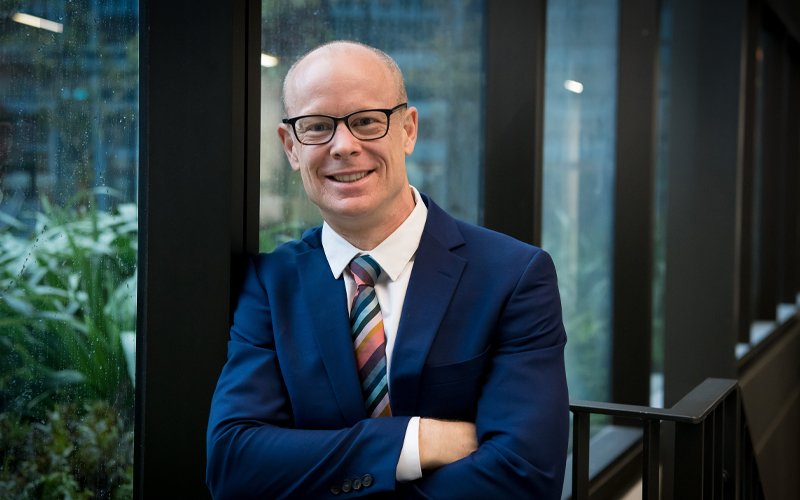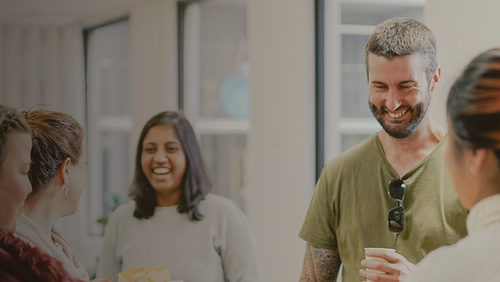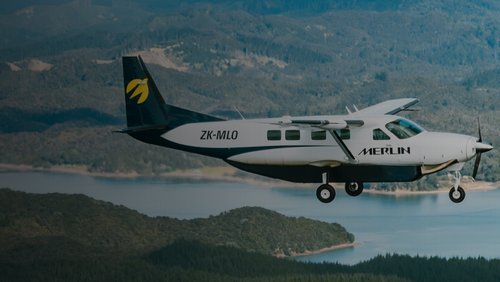16 Feb 2024
This month we caught up with Vice-Chancellor of Te Herenga Waka—Victoria University of Wellington, Professor Nic Smith. Find out about some of Nic’s career highlights and the core skills he believes engineering students will need entering the workforce in 2025 and beyond.
What is your role at Victoria University of Wellington?
I am the Vice-Chancellor, having taken up the role in January last year.

Image: Victoria University of Wellington
How did you make the shift from being an academic in the classroom to working on strategic direction and management?
It was a slow shift for me from being an academic to working in strategic direction management and leadership and it was probably motivated by always looking at the thing beyond what I was doing. Universities are full of incredibly smart individuals but are often quite siloed and, perhaps due to my engineering bent, I find the process of putting things together really exciting. I was an interdisciplinary engineer who combined medicine, computer science, mathematics and physiology. I think what drove the transition for me was seeing that the same approach can be taken when it comes to management—you can create opportunities by bringing different groups together to do something they otherwise couldn’t do individually.
Tell us about three of your career highlights?
I had a PhD student who initially struggled with some of the technical aspects of the work but was incredibly good at listening and seeing opportunities. As a supervisor, I think it’s not so much the result that’s achieved that stands out but the value that’s added along the way. The student ended up producing a remarkable piece of work that was published in both the most prestigious academic journals and was also used in hospitals around the world. Being part of that was really exciting.
The second was undoubtedly the haka I was part of creating and performing for the opening of a new Engineering Building at the University of Auckland in 2019. The whole process was a highlight but the thing that was most memorable was that after the building was opened and the dignitaries had left we had the Christmas lunch for the whole Faculty and we did it again. There are only a few times in one’s career where you feel you are part of something bigger than you, and you are lucky to be there. It was very special to feel I had helped to create a place where everybody came together and had a sense of belonging.
A third is coming here, to Victoria University of Wellington. I’ve enjoyed all my roles but there is something about coming back to New Zealand, and for me it was post-pandemic and a time when I had been apart from my family and had been in the Australian system. Arriving at this university, you see not only the quality but also the New Zealand attitude of being prepared to roll our sleeves up and do what needs to be done, which I certainly didn’t see in the same way in either Australia or the UK. There is a feeling that we are here for each other and it’s freer of hierarchy than many other places. You see that in all sorts of ways in New Zealand—during the cyclone and the pandemic—but to see it in a university and to be given the chance to lead my current university, that is a career highlight.
Is there any academic who inspired you to enter the world of academia?
There are many but the person who comes to mind is Distinguished Professor Peter Hunter. He was my PhD supervisor. I never realised how famous he was until much later which is a credit to him. He’s a brilliant thinker but also an incredibly generous and kind human being. I first met him when he came to my primary school when I was eight. These days he’s revered by people all over the world but back then he turned up in a ute with some computers on the back and ran some accelerator programmes in Maths and Science. I’ve intersected with him many times in my career and I still reflect back in many situations and think what would Peter do here.
My parents are the other people – my mother was always interested in the human side of what it meant to see things from different points of view, which I do think is an essential role of an academic. I see an educated person as one who is prepared to change their mind and she is very adept at that. My father had this infectious enthusiasm for finding things out. He was the guy who would drive up and down the road honking the horn so we could understand the Dopler effect or bring home microscopes so we could look at the crystals we’d grown out of salt solutions. He really gave me a love of learning.
I think sustainability and climate change are the existential challenges of our age..
How have you introduced and incorporated principles of sustainability and climate action in academic programmes over the years?
I think sustainability and climate change are the existential challenges of our age and as institutions that are charged with thinking in longer time scales than Tik Tok, universities have a responsibility to ponder on those challenges. The most significant thing I have done was at Queensland University of Technology where we developed a curriculum that will be compulsory for every student and has sustainability as a core element. It gets going in 2024 and will see students form multidisciplinary groups and look at the existential questions of our time—sustainability, digital evolution, understanding self and understanding others. I’d love to do something like that here – when we get time!
Why do you think the Sydney, Dublin and Washington Accords are important benchmarks for engineering qualifications?
Engineering as a profession is actually much more diverse, in terms of what engineers do and how they are trained, than many other professions. Law for example has different frameworks but even within those you get fairly consistent training whereas a biomedical engineer or a cyber security engineer or a mechanical or civil engineer have very diverse training. Having a framework that connects the technical training individual sub-disciplines to a series of wider graduate attributes is really important.
What core skills do you think engineering students need when they enter the workforce in 2025 and beyond?
We often think of engineering as technical skills but actually I think it requires the same sort of lifelong learning skills that many other disciplines require—being able to rationalise complexity, navigate uncertainty, communicate to diverse audiences, and ultimately harness some of the amazing technological tools we have to create and support change that is relevant and important and valued by society as a whole.
If you could meet any engineer in the world, who would it be and why?
I’d like to meet the engineers of the future and understand what their challenges have been as they balance the technological power that we have today with the responsibility for its deployment into the future.
What is your favourite piece of engineering in Wellington?
The Brooklyn wind turbine. It’s an interesting example of a design which I think has some sculptural aesthetics but has primarily been driven out of function, which is not unusual for aerodynamics. But it is also what it represents that I like–a sustainable resource that is also an icon to a sustainable future.





